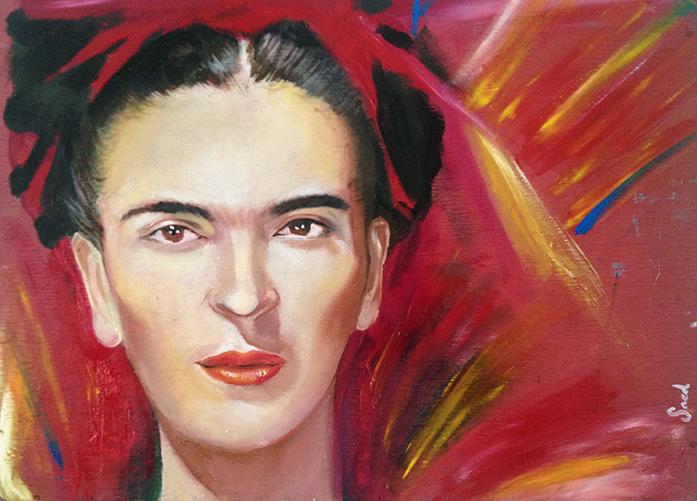By Vivian Medithi
On Nov. 30, I saw the film Officer Downe at FilmScene, a movie about a cop in a futuristic Los Angeles dystopia who is repeatedly sent on suicide missions by the LAPD and then resurrected, rinse and repeat ad infinitum. After the film, there was a Q&A with director Michael Crahan.
When asked about the political message of shooting a film fraught with justified, over-the-top police violence, Crahan shrugged it off, arguing that art is art and wryly noting that he invariably gets this question at every Q&A. I respect Crahan’s artistic perspective, but have always felt that art is inextricably bound to the time and place in which it was made, including politics and history. Artists are products of their environments and upbringings, and in order to fully appreciate their work, we need an understanding of who they are as an artist.
Consider Frida Kahlo, a Mexican painter best known for her vibrant self-portraits. Kahlo’s work is rooted firmly in her identity, both as an individual and on a cultural level. To this end, Kahlo was very particular about how she depicted herself in her work, and a full understanding of her oeuvre requires knowledge both of Kahlo’s life story and Mexican history. As a teenager, Kahlo was in a bus accident that left her right leg fractured in 11 places and thus took to wearing longer dresses to hide her lower half.
Later in life, her disability synthesized with Kahlo’s feminist and post-colonial politics into a love for Tehuana dresses. Tehuana dresses come from the Isthmus of Tehuantepec and were allegedly worn by women of matriarchal societies in the region. In post-revolution Mexico, Tehuana dresses became representative of traditional Mexican culture and thus allowed Kahlo a way to incorporate her heritage into her everyday wear and her art.
Without knowing the history of the Tehuana dress, a casual observer of a Kahlo self-portrait would be blind to crucial themes in her paintings, missing out on deeper nuances. And while Kahlo didn’t always paint herself wearing a Tehuana dress, she never shied away from depictions of her disability, both representational and metaphorical.
While artists such as Kahlo explicitly tie their art to time, place, and creator, artists who work in more surreal or fantastic genres may see their art as somehow independent of the context in which it was created. Yet, even our wildest imaginations are grounded in how we perceive and feel about the world around us. Art, at its best, is not merely representational or aesthetically pleasing but emotionally resonant. This emotional resonance means that all art has a message, whether explicit or implicit. This message can be particularly political, as in the work of Kahlo and scores of artist-activists, from Barbara Kruger to Kara Walker, or apolitical entirely, meditating on the human condition and emotions. Yet even this latter category is rooted in a political context.
Take a hypothetical painting of two lovers sitting on the bank of a river. The way the river and environment are depicted will depend on the artist’s location and the flora and fauna he or she knows about, even if the setting is completely fictitious, existing only in the mind of the artist. The clothes the figures wear will be influenced by the artist’s views on both contemporary and historical fashion, as well as what the artist wishes to convey about the figures. You could mentally extrapolate numerous other examples, but the bottom line is that art is always rooted in context. And that means that making a movie about a cop, even one set in a sci-fi dystopia that functions as a fun-house mirror reflection of Los Angeles, is not just an artistic statement but a political one, too.










